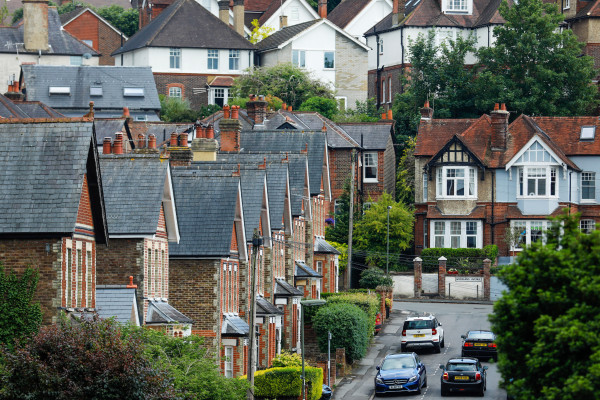

Buy-to-let mortgage arrears have risen by a mere 6 per cent in the second quarter of this year as government measures to curb the effects of the coronavirus pandemic took hold.
Arrears and possessions data from UK Finance, published today (August 13), showed the number of BTL mortgages in arrears of at least 2.5 per cent of the outstanding balance reached 5,000 in Q2, up 6 per cent from the 4,720 recorded in the same quarter last year.
Of these 1,270 BTL mortgages had significant arrears of at least 10 per cent, which was also up on the 1,210 mortgages in high arrears found in Q2 2019.
However, the industry body noted the latest figures were still “relatively small" and had come "from a low-base”.
It said the increase was likely due to the early effects of the coronavirus and added that levels of arrears had remained lower than seen in previous years.
Since March borrowers who are struggling to make their mortgage repayments because of the coronavirus have been able to take a payment deferral, with mortgage arrears consequently remaining low in Q2, according to UK Finance.
The trade body said more than 2m mortgage payment deferrals had been approved to date, with just under 1m still in place.
Lenders also agreed a moratorium on possession action as a result of the coronavirus, which is due to end on October 31.
UK Finance's data showed a significant drop in the number of repossessed BTL properties at 130 cases, down 80 per cent from the same quarter last year (640). According to the industry body, the low possession numbers reflected cases where the customer requested the possession to go ahead, or where the property was vacant.
Steve Seal, managing director at Bluestone Mortgages, said: “While on the surface, today’s figures may look promising, it is likely we will not see the full extent of the Covid-19 crisis on mortgage arrears until government support measures for homeowners end.
“Mortgage payment holidays, for example, have gone a long way towards helping homeowners who have faced financial difficulty during the pandemic, ultimately keeping the number of mortgages in arrears low – at least for the time being.”
Meanwhile the number of homeowner mortgages in arrears fell to 73,580 in Q2 2020, down 3 per cent on the 75,960 in the same quarter last year.
The number of homeowner mortgaged properties taken into possession also dropped significantly, by 93 per cent, from 1,270 in Q2 2019 to 90 in Q2 this year.
Tenants maintain rent payments
The data from UK Finance comes after a survey by the National Residential Landlords Association (NRLA) found 87 per cent of private tenants had paid their rent as normal throughout the pandemic, dispelling ‘fears’ of a surge in evictions when the evictions ban ends later this month, according to the association.
Additionally, 8 per cent said they had agreed a reduced rent, rent-free period or made some other agreement with their landlord or letting agent.
However, about 3 per cent of tenants had built arrears, and were unable or unwilling to repay those. Less than a third of all those with arrears had been served a possession notice.
The survey was conducted between July 20 and August 4 with 2,000 private tenants.
Ben Beadle, chief executive of the NRLA, said: “Consistent with our previous surveys, this latest data demonstrates that the vast majority of landlords and tenants are working together to sustain tenancies, and critically that the overwhelming majority of tenants are paying rent as normal.
“Eviction is not, and need not be, an inevitable outcome where tenants have struggled to pay their rent due to Covid-19.”
The findings came ahead of the courts resuming the processing of possession cases from August 24. In June the government extended a ban on evictions to protect renters across England and Wales during the coronavirus.
The NRLA is calling for government guaranteed hardship loans for tenants who are in arrears because of the pandemic, arguing that loans should be provided on an interest-free basis.
chloe.cheung@ft.com



